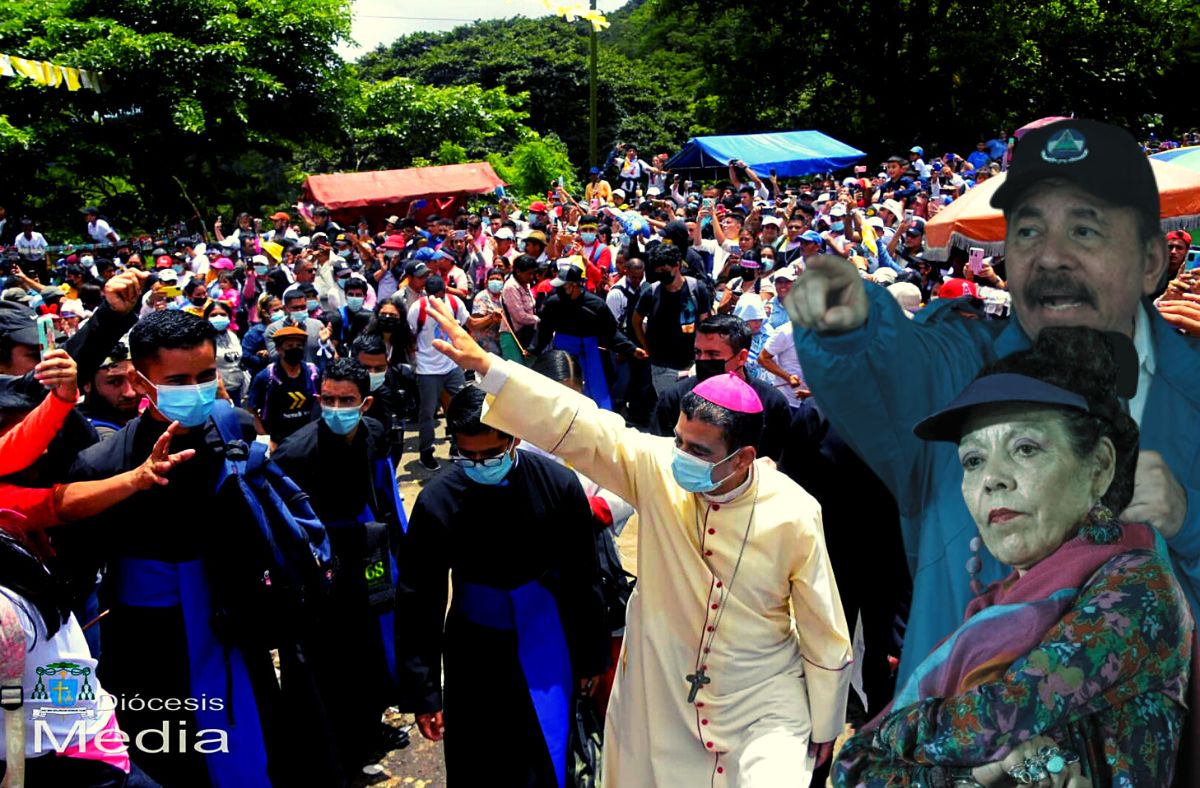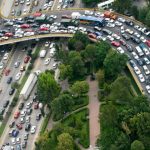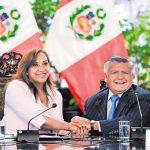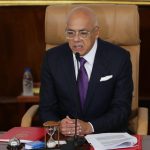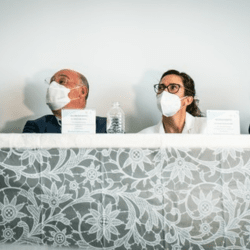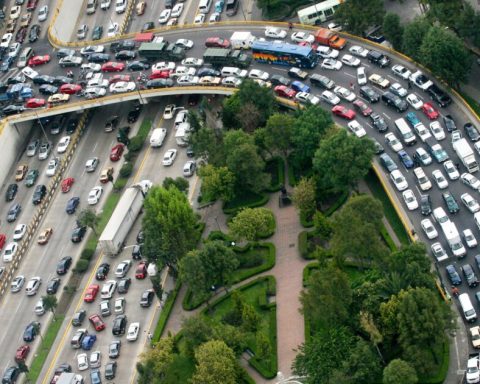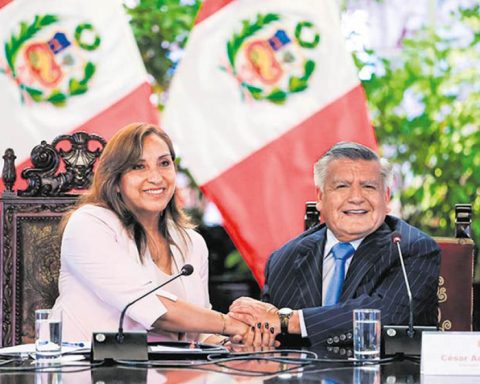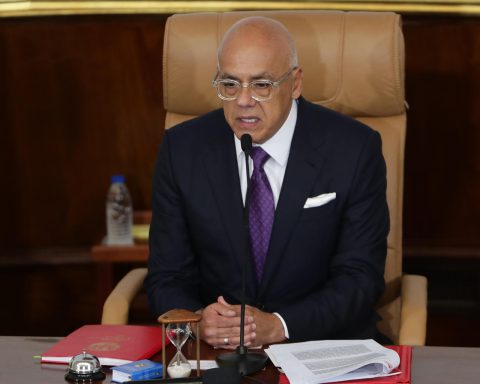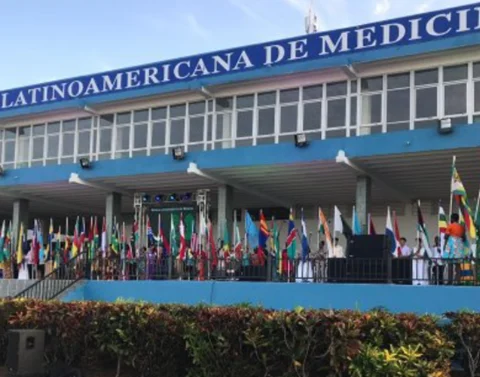Monsignor Rolando Alvarez and eleven people who accompany him completed five days of being subjected to de facto home imprisonment in the Episcopal Curia of Matagalpa, by order of the regime of Daniel Ortega and Rosario Murillo.
This Monday, the dictatorship ordered an increase in the police presence at all accesses to the headquarters. Sources informed Article 66 that “there is more surveillance, riot police, some with balaclavas and heavily armed.”
Related news: This is what the resolution on Nicaragua says that the OAS Permanent Council will vote on this Friday
The twelve people who are inside the curia, including priests, seminarians, choristers and workers from the TV Merced media outlet, fast and pray daily from the morning hours, which gives them spiritual strength and keeps their spirits up.
Also, this allows food to last a little longer. However, there is concern about the health of Father Ramiro Tijerino, who accompanies the monsignor, and suffers from hypertension, diabetes, spinal problems and does not have access to his medicines.
The Vice President of the Spanish Episcopal Conference (CEE) and Archbishop of Madrid, Cardinal Carlos Osorio Sierraexpressed his solidarity with Monsignor Rolando Álvarez.
The prelate, close to Pope Francis, stated that “he prays for the people of Nicaragua and for the Church that pilgrims in the country, which, with its testimony, makes the Gospel present as Santo Domingo de Guzmán requested.”
The Episcopal Conference of Bolivia He also joined the expressions of support that the bishops of the region have issued in the face of religious persecution in Nicaragua.
For its part, the Honduran Catholic Media Association (AMECAH) advocated dialogue so that the seven Catholic media outlets can resume their operations.
Related news: Catholic media in Honduras urge a “dialogue” in Nicaragua to stop the repression against the church
Another of the figures who spoke was the former major league player Dennis Martinezwho confessed to crying and admiring the bishop’s “fortitude of spirit”.
The Organization of American States (OAS) could discuss the situation in Nicaragua this week. The permanent missions of Antigua and Barbuda, Canada, Chile, Costa Rica, the United States, Peru, the Dominican Republic, and Uruguay asked the Chair of the Permanent Council to convene a special session for Friday, August 12.
Preliminary information indicates that the draft resolution establishes “strongly condemn the forced closure of NGOs, harassment and arbitrary restrictions imposed on religious organizations.” The request was submitted on August 5, the date on which the regime imposed de facto house arrest on Monsignor Rolando Álvarez.
The regime’s spokeswoman, Rosario Murillo, reported that the Japanese government gave approval to Sandy Davila as Nicaraguan ambassador to the Asian country. In addition, she revealed that Silvia Miranda Paniagua, who is the regime’s representative to UNESCO in Paris, was appointed as chargé d’affaires to Greece.
Likewise, the regime made official its mutual visa abolition agreement for citizens who wish to travel to the Asian country of Kazakhstan and those who want to enter Nicaragua, a measure that has been implemented in more than 80 countries. Oil and gas-rich Kazakhstan is the most influential country in Central Asia, which this year faced strong protests over high fuel costs.
The Blue and White National Unity (Unab) addressed a letter to the new president of Colombia, Gustavo Petroin which he expresses his desire to continue counting on the accompaniment and support of the South American country with the Nicaraguan people.
The opposition organization pointed out that Colombia has maintained a “consistent conduct” in demanding respect for human rights and the need for a democratic solution to the crisis in Nicaragua, and hopes that this position will be maintained in international forums and multilateral organizations.
